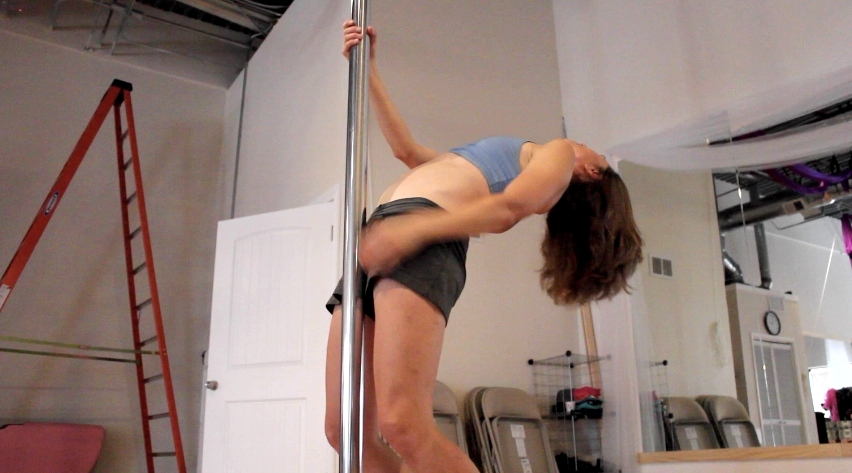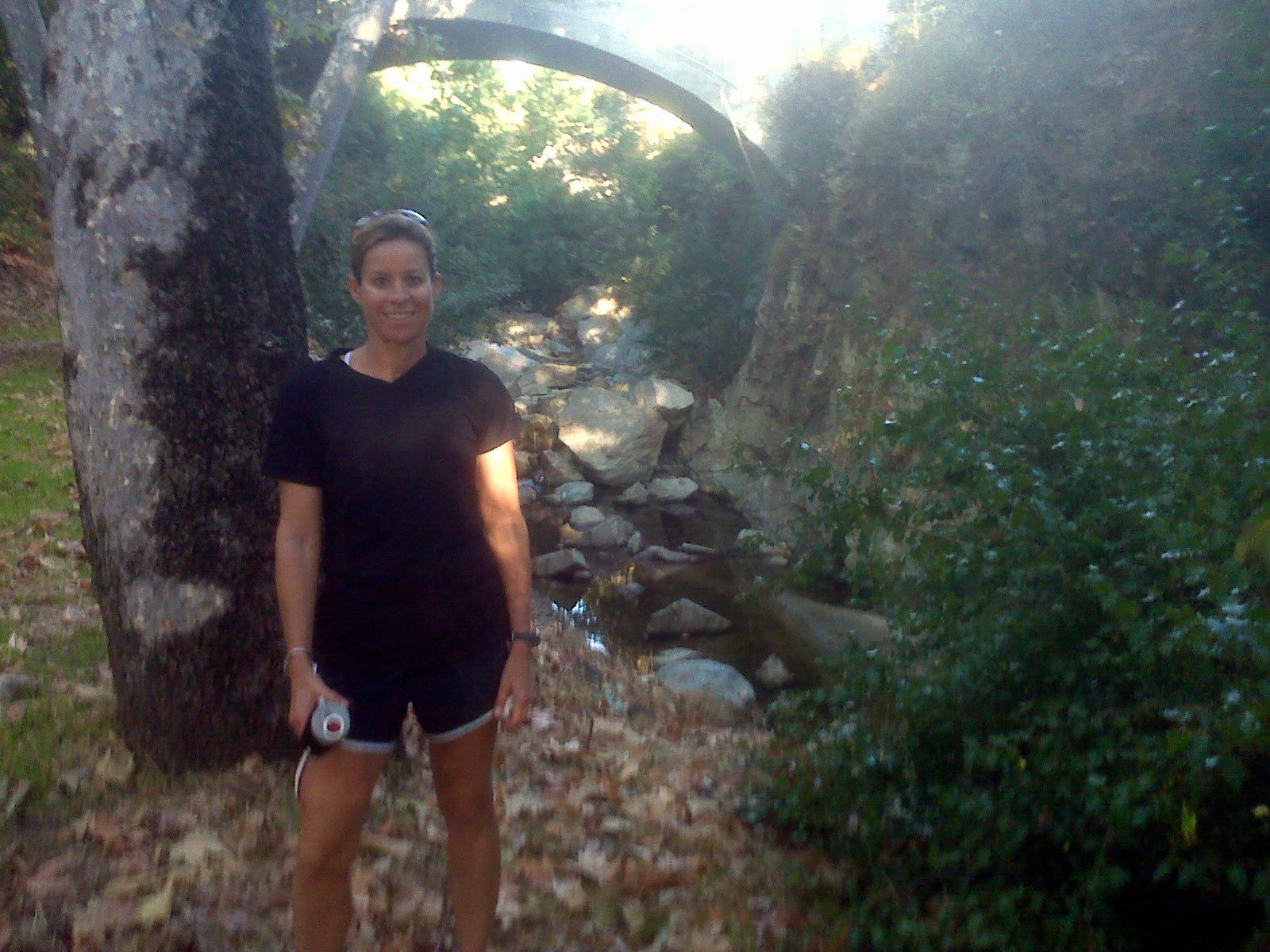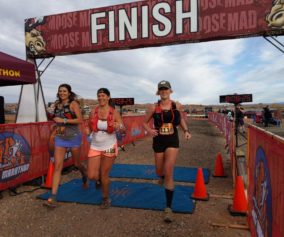Because I’m an older runner, I get a lot of questions from clients about how to continue to improve as a runner after the age of 40. Once I get over being offended (just kidding – I really don’t get offended), I usually reassure them that being an over-40 runner might just possibly be the best time of their running career – seriously. I know that for me, I am running at a higher level now, at age 44, than I have ever run. I think so many of the myths about what we are capable of as we age are just that – myths.
There are things, however, that you do need to do to maximize your potential after age 40 that you may not have given much thought to when you were younger.
1. Rest. While you may have been able to get away with 5 hours of sleep while running 60 -120 miles per week when you were 30 years old, after 40 you really need to get plenty of sleep. Sleep is where your body repairs itself from the stress you put it under during the day (see my earlier post on the importance of rest for runners). It is important to get 7 – 8 hours of sleep per night, and if possible, take a nap after really hard efforts, such as long runs.
2. Eat well. Remember that what you put into your body is what fuels it, helps it to repair itself, and gives it the necessary building blocks for adding/maintaining muscle. Since we lose muscle as we age, we need to be very aware of giving our body what it needs so that it can continue to build muscle while we train. Don’t short your body on what it needs to stay operating at its maximum potential.
3. Get massages. With all the evidence showing that stretching can actually be harmful for runners, it is important to find alternative ways to keep your muscles loose as you age. Training at a high level puts a lot of stress on your muscles, ligaments, and joints. When you are over 40, it can be more difficult to stay agile, and small falls or missteps can lead to big injuries from over-tight muscles if you are not careful. Regular massage can really help your muscles stay loose and elastic.
4. Cross-train. Now, I do not mean cross-train in place of running. Rather, I mean ADD cross-training to your regular running regimen. Running is a sport that requires specificity for improvement, therefore, you have to run to be a better runner. But, after 40, it becomes more important to add cross-training to help you strengthen support muscles and ligaments, add flexibility, and loosen joints. Swimming is an ideal form of cross-training for runners, especially those over 40. It is a no-impact way to build muscle and strengthen your core, while loosening the rest of your body.
5. Let go of guilt. After 40, it is more than likely that your kids are a little bit older. This is the time when you can dedicate more of yourself to doing what you love without the guilt of feeling selfish. It is not a waste of time to do something you love that also helps you stay healthy, fit, and emotionally balanced. Even if you aren’t running competitively, just getting out and doing something for yourself on a regular basis will improve your quality of life, and therefore, the quality of life of those around you. Enjoy it!
6. Get blood tests. As your body changes in your 40s, so do your hormone and vitamin/mineral levels. It is important to monitor your levels on a regular basis, and work with your doctor to make sure you are supplementing when needed. Common deficiencies in older runners are iron, vitamin D, and testosterone. Any one of these deficiencies can have serious negative effects on your running, and your health in general.
7. Run socially. Having a group to support your running can be incredibly beneficial in your 40s. The pressure to “act your age” can often keep very talented runners from reaching their full potential in later years. Family, friends, and even the lady at the grocery store, can make you feel silly for trying to go sub-3 in the marathon, or trying to make a national team, when you are over 40. By having a group of running friends who believes that your running goals are important, and who supports your dreams, you will be less likely to cave into the “you’re too old” mentality.
8. Try different events. While you may be convinced that you have to stick with the 5k because that’s what you’ve always done, this is the best time to experiment. After 40, you will probably find that you have more endurance than you did during your younger years of running, and may see a new level of success at longer events. Or, maybe you will find a new level of tolerance for the anaerobic feeling of speedwork, and decide that shorter events suit your temperment better now. Give new distances a try to see what your years of experience have given you, and also to change up your routine. You may be surprised at how things change, and get better, as you age.
9. Have fun. While you may be getting more serious about your running now that you are older, make sure that you appreciate what a fun part of your life it is. Having fun while setting goals and creating challenges, and then meeting them, is one of the most important parts of success. If something isn’t fun, then it probably isn’t worth pursuing. You will be much more likely to be successful if you are enjoying what you are doing, and remembering that it is supposed to be fun, while you are going for the gold!
10. Embrace the benefits of age. As an older runner, you have many beneficial qualities that younger runners don’t yet possess. One of the most important components of successful long-distance running is endurance. As an older runner, you have years of practice that cannot be “bought” or faked by less experienced runners. Simply put, you have time on your feet, and that is a HUGE component of success in endurance events. Similarly, as an older runner, you (should) have more patience. The longer, or tougher, the event, the more important patience becomes. It is no coincidence that the US National Teams of Ultrarunning are heavily populated with runners over the age of 40. Those runners know the value of patience in longer distances, and have spent years building a strong foundation for longer events. Time is on their side.
Being a runner over the age of 40 can be one of the best times of your running life. You are stronger, more patient, and more resilient than when you were younger. If you make sure to take care of your body, let go of any lingering guilt and peer pressure, and embrace the unique qualities that only come with age, you can be running at your highest level.


















But you’re NOT an older runner. The peak age for ultra runners is between the ages of 35 and 45. This puts you right smack in the middle of your peak fitness and age for ultra marathons…
Glass half full. 🙂